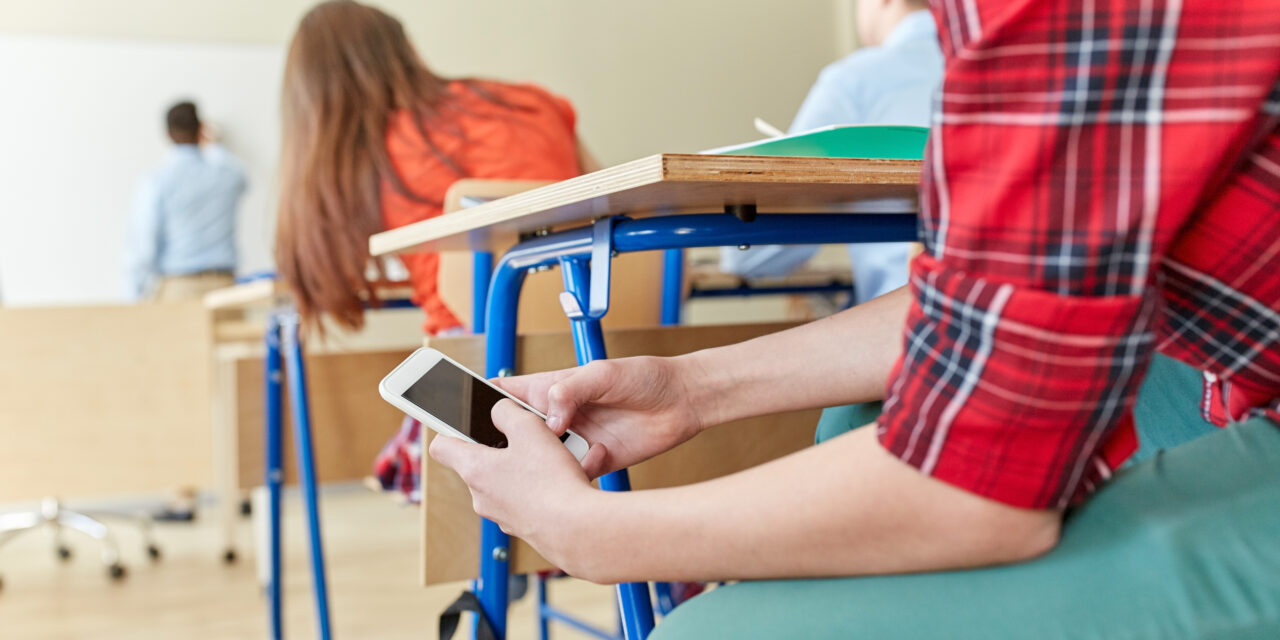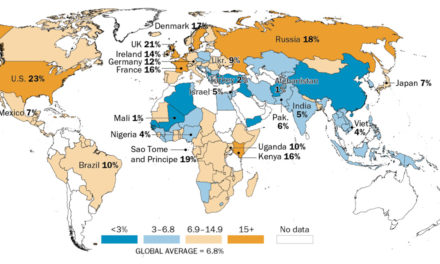Some school districts have banned students from using cellphones during school hours, the New York Times reports, as communities grapple with young people’s increasing addiction to smartphones and tablets.
Building on a Florida law banning cellphone use in class, Orange County school district in Orlando is one of at least three in the nation to enact a total cellphone ban, the Times reports. At Orange County’s Timber Creek High, that means a patrolling security guard will confiscate any cellphone he sees.
Orange County teachers like Nikita McCaskill told the Times the ban made students “more talkative and more collaborative.” Others reported students made more eye-contact and seemed more aware, a welcome change from the increased screen fixation following the pandemic.
Bullying also decreased after banning phones, Timber Creek principle Marc Wasko reports, because students can no longer film embarrassing or harmful videos of other classmates to post on social media.
Predictably, not all students appreciated the change. Some felt increased patrolling by security guards made Timber Creek feel like a prison. Even those who thought the ban had some positive effects, like “help[ing] people be who they are — instead of who they are online — at school,” reportedly felt less safe without a direct line to their parents.
In a response to the Times’ article, theologian Al Mohler expressed shock at Orange County students bemoaning that “they could no longer use their phones to check their class schedules during school, take photos of their projects in art class, find their friends at lunch — or even add the phone numbers of new classmates to their contact list.”
“How difficult can it be to find your friends at lunch?” Mohler questioned on Wednesday’s episode of The Briefing. “Has this become something like a lost social skill that now requires a generation of younger Americans to discover, say, the great social mechanism of how to find your friends in a lunchroom?”
Mohler further expressed surprise at an eighth grader interviewed by the Times who found her lack of a cellphone “completely isolating.”
“Now remember, she’s not alone, she’s at school,” muses Mohler. “She’s in a classroom, she’s in a lunchroom, she’s in a gymnasium, she’s with other students, she’s with a teacher. But without her phone, the experience is completely isolating.”
Mohler’s surprise reflects the perspective of a person who did not grow up with pocket-sized super-computers. As someone straddling the pre- and post-internet age, I can attest smartphones play a crucial role in young people’s social lives — not just virtually, but in-person.
Smartphones facilitate private conversations between friends on a crowded bus. They allow students to look busy in a new or uncomfortable environment — the way people used to bury themselves in a newspaper. Even sitting at the same lunch table, students trade phones to show each other funny or interesting pictures and videos.
It’s no surprise, then, that middle and high school students feel isolated without their two-in-one social facilitator and buffer. It doesn’t make them weak, lazy or dumb, as members of Gen. Z are frequently labeled — they’re reacting normally to a radical change in social rules and expectations.
That being said, Mohler is absolutely right — students shouldn’t need smartphones to interact with their peers. Cellphone bans like Orange County’s allow educators to help divorce students from their devices, but schools can’t make any difference without dedicated parents’ support.
Unfortunately, some don’t seem to be on the “screen detox” bandwagon.
Timber Creek teacher Lisa Rodriguez-Davis posted this parody TikTok to illustrate the angry reactions she receives from students’ parents’ when she confiscates their children’s phones.
@lisa_roddavis #parentcall #nocellphones #springbreak #teachersoftiktok #fyp #trendingteacher #middleschoolteacher #middleschool #teachersbelike #trending
Concurrently, Mohler notes:
“Many parents, quite frankly, are also using this shortcut of texting to their kids rather than looking them in the eyes and talking to them, and requiring those same teenagers and children to look the parent in the eye and talk back respectfully.”
Children absorb and emulate parents’ behaviors, which means moms and dads need to confront their own dysfunctional smartphone and tablet habits before confronting their kids’. It also means parents should support teachers who require appropriate technology use in the classroom.
Compassionate remedies from smartphone addiction are out there — but only if schools and parents work together. So everybody hop on that bandwagon!
Additional Articles and Resources:
Plugged-In by Focus on the Family
The Harmful Effects of Screen-Filled Culture on Kids
Survey Finds Teens Use Social Media More Than Four Hours Per Day — Here’s What Parents Can Do
Image from Shutterstock.






